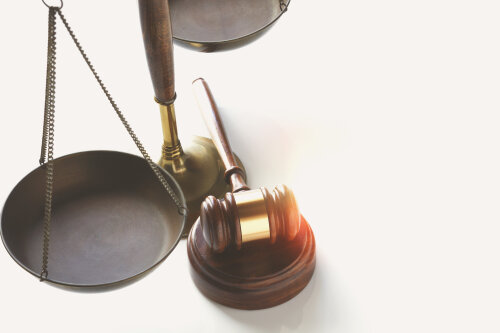Best General Litigation Lawyers in Fort McMurray
Share your needs with us, get contacted by law firms.
Free. Takes 2 min.
List of the best lawyers in Fort McMurray, Canada
Canada General Litigation Legal Articles
Browse our 1 legal article about General Litigation in Canada written by expert lawyers.
- How to Claim Personal Injury Damages in Ontario Canada
- Victims have two years from the date of the accident to initiate a lawsuit against the at-fault driver in Ontario. Ontario uses a hybrid system where you receive immediate "no-fault" benefits regardless of who caused the crash, while also retaining the right to sue for additional damages. To successfully sue... Read more →
About Litigation Law in Fort McMurray, Canada
Litigation law in Fort McMurray, part of Alberta, covers a wide variety of legal practices and disputes that require formal legal proceedings to resolve. Whether related to business disputes, personal injury, contract disagreements, or other civil matters, litigation serves as a formal mechanism for resolving conflicts through the judicial system. In Fort McMurray, litigation cases are handled predominantly by the Alberta Court of Queen's Bench and Alberta's Provincial Court, depending on the case type and complexity.
Why You May Need a Lawyer
Engaging in litigation can be a complex and time-consuming process. Here are some common situations where you might seek legal help:
- Business Disputes: When conflicts arise between businesses or within partnerships that cannot be resolved through negotiation.
- Personal Injury: If you've suffered an injury due to someone else's negligence and require compensation.
- Contract Disagreements: When parties in a contract cannot agree on terms or believe one party has breached the contract.
- Property Disputes: Conflicts regarding property ownership or boundaries.
- Debt Recovery: When monetary disputes require formal proceedings for resolution.
Local Laws Overview
Alberta's legal system includes both provincial and federal laws. Some key aspects impacting litigation in Fort McMurray include:
- Limitation Periods: There are strict timelines within which legal action must be commenced, usually two years from the date the claimant became aware of the claim.
- Discovery Process: A mandatory pre-trial process where both parties exchange all relevant information and documents concerning the case.
- Small Claims Court: Handles claims up to $50,000, suitable for less complex civil matters.
- Rules of Court: Govern the procedural aspects of litigation, outlining processes for filing claims, serving documents, and conducting trials.
Frequently Asked Questions
What is the first step in starting a lawsuit in Fort McMurray?
The first step typically involves filing a statement of claim with the appropriate court. This document outlines the legal basis for your case and what you are seeking in terms of compensation or action.
How long does the litigation process take?
The duration varies depending on the complexity of the case, court schedules, and willingness of parties to settle. It can range from a few months to several years.
Do I always have to go to court?
Not necessarily. Many disputes are resolved through mediation or arbitration, avoiding the need for a full court trial.
What is the cost of hiring a litigation lawyer?
Costs vary significantly, depending on the lawyer's experience, complexity of the case, and billing method (hourly, flat fee, or contingency).
Can I represent myself in court?
Yes, individuals can represent themselves, but it is generally advisable to have legal representation due to the complexities involved.
What is mediation?
Mediation is an alternative dispute resolution method where a neutral third party helps the disputing parties reach a mutually agreeable solution.
What are alternative dispute resolutions (ADR)?
ADR includes various methods like mediation and arbitration, which help to settle disputes outside of court, often saving time and cost.
What happens if the other party does not comply with the court's decision?
The winning party can enforce the judgment through various legal mechanisms, including garnishment or seizure of assets, if voluntary compliance is not forthcoming.
How can I appeal a court decision?
You must file a notice of appeal within a specified timeframe after the court's decision. Appeals focus on legal errors made during the trial rather than factual disagreements.
What is the role of a notary public in litigation?
Notary publics in Alberta can verify signatures, administer oaths, and certify copies of documents, but they do not play a role in representing parties in court cases.
Additional Resources
Here are some resources and organizations that can offer support or information in litigation matters:
- Law Society of Alberta: Provides information on finding an accredited lawyer and understanding your legal rights.
- Legal Aid Alberta: Offers legal assistance for those who qualify financially for support in various types of law including civil litigation.
- Alberta Courts: Comprehensive resource for court locations, filing information, and procedural guides.
- Centre for Public Legal Education Alberta (CPLEA): Offers educational resources designed to help you understand your rights and responsibilities.
Next Steps
If you require legal assistance in litigation, take the following steps:
- Identify your legal needs: Determine the nature of your dispute and what resolution you are seeking.
- Consult a Lawyer: Contact a lawyer specializing in litigation to discuss your case. The initial consultation can provide insight into the legal merits of your case and potential outcomes.
- Prepare Documents: Gather any relevant documents, correspondence, or evidence that pertains to your case. A lawyer can advise on what is necessary.
- Understand Your Options: Discuss potential outcomes and strategic approaches with your lawyer, including the possibility of settling out of court.
Engaging with a qualified legal professional is crucial in navigating the complexities of litigation successfully. By understanding your options and diligently preparing for the process, you can better protect your rights and interests in Fort McMurray's legal landscape.
Lawzana helps you find the best lawyers and law firms in Fort McMurray through a curated and pre-screened list of qualified legal professionals. Our platform offers rankings and detailed profiles of attorneys and law firms, allowing you to compare based on practice areas, including General Litigation, experience, and client feedback.
Each profile includes a description of the firm's areas of practice, client reviews, team members and partners, year of establishment, spoken languages, office locations, contact information, social media presence, and any published articles or resources. Most firms on our platform speak English and are experienced in both local and international legal matters.
Get a quote from top-rated law firms in Fort McMurray, Canada — quickly, securely, and without unnecessary hassle.
Disclaimer:
The information provided on this page is for general informational purposes only and does not constitute legal advice. While we strive to ensure the accuracy and relevance of the content, legal information may change over time, and interpretations of the law can vary. You should always consult with a qualified legal professional for advice specific to your situation.
We disclaim all liability for actions taken or not taken based on the content of this page. If you believe any information is incorrect or outdated, please contact us, and we will review and update it where appropriate.









